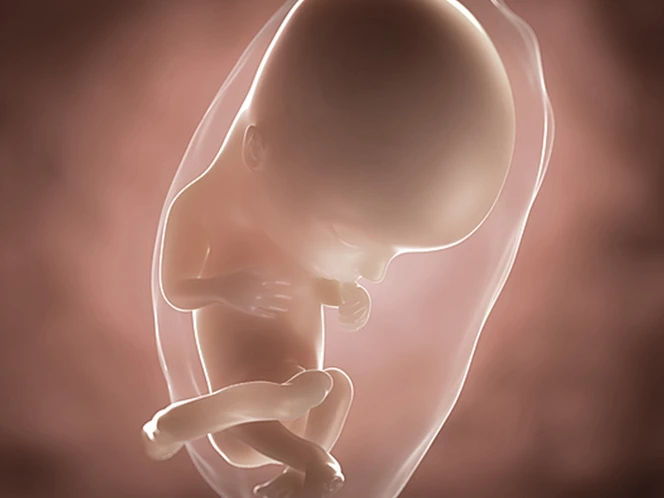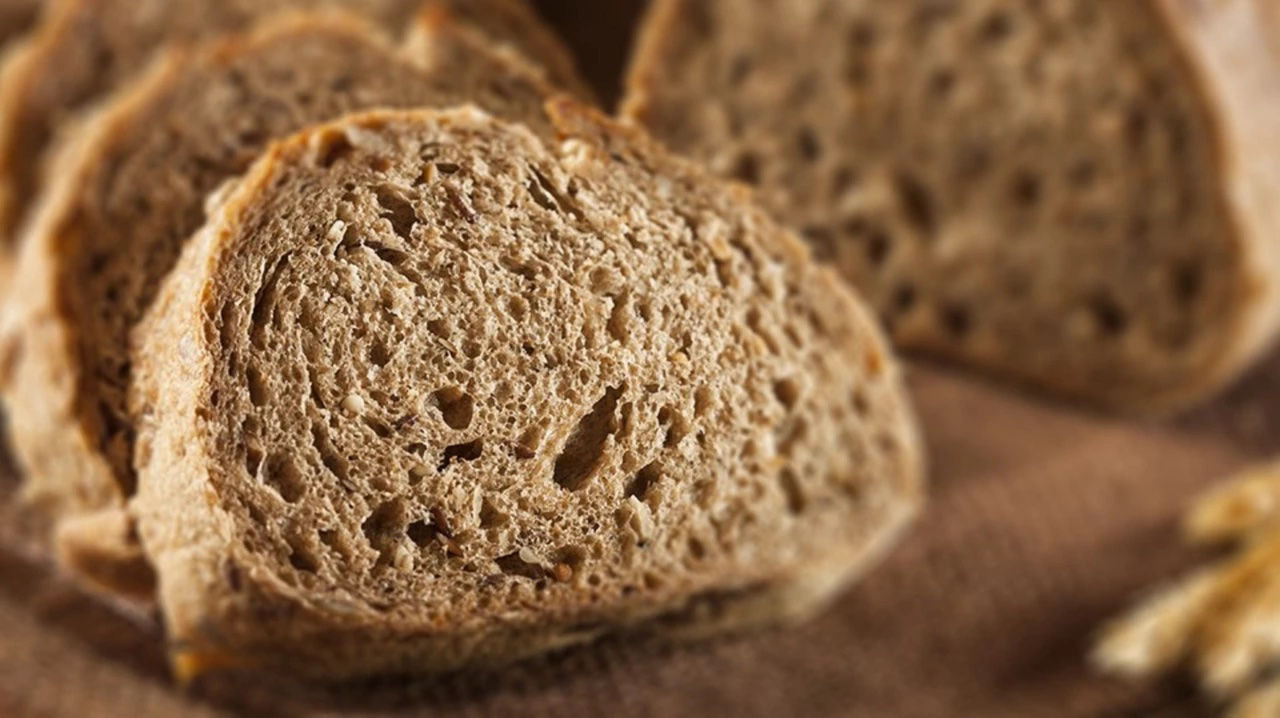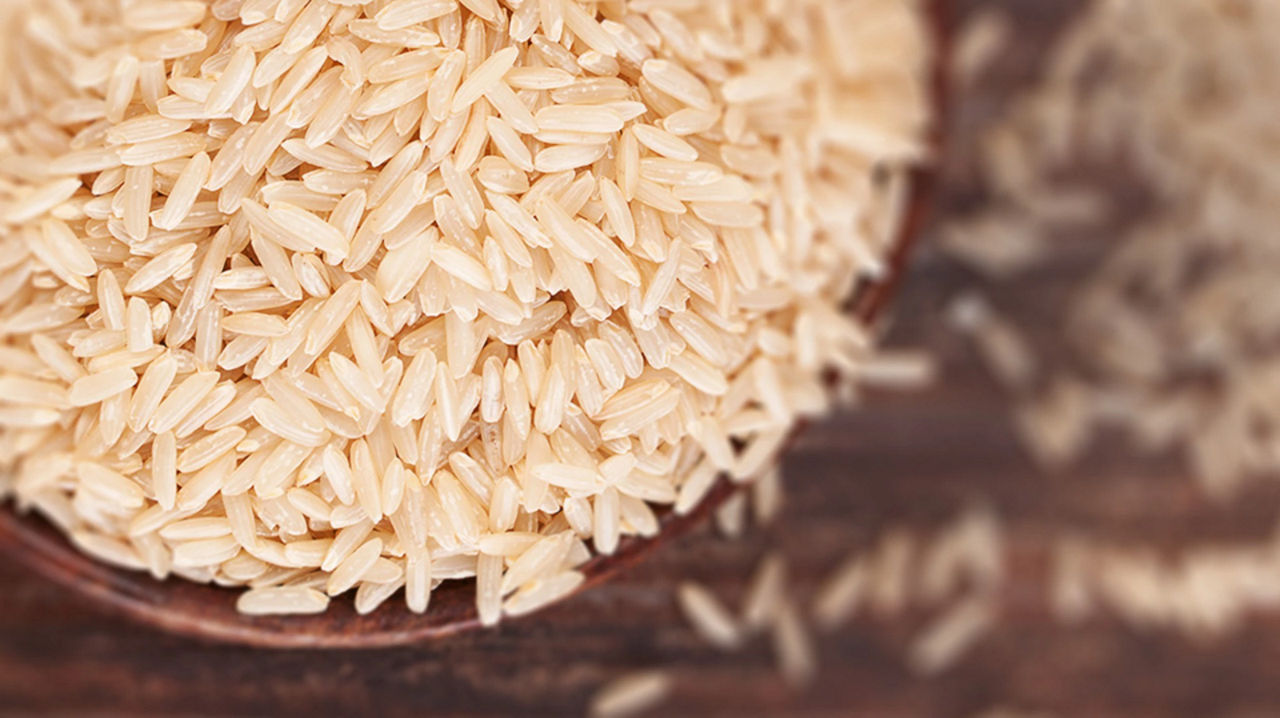13 Weeks Pregnant: Pregnancy Symptoms & Baby Development

Explore pregnancy stages week by week
Baby development at 13 weeks
At 13 weeks pregnant, you’re officially in your second trimester and a third of the way through your pregnancy. As you go through your pregnancy week by week, you may notice that some of those early pregnancy symptoms are starting to ease and that the worst of your symptoms have passed1.
Now that you’re 13 weeks pregnant, your baby is rapidly growing. Here we’re looking at how your baby is developing, what symptoms you might be experiencing, and why fibre is such an important part of a healthy pregnancy diet.

Your baby’s development at 13 weeks pregnant
Whilst it may still be too early to find out the sex of your baby, at 13 weeks pregnant their genitals are starting to form outside their body. What was previously a swelling is now becoming a penis or a clitoris, and the testes or ovaries are now in place and fully formed2.
Other developments this week include the continued growth of your baby’s internal organs, including their liver, kidneys and pancreas3. Over the coming weeks, your baby’s focus will be on growing bigger.
How big is my baby at 13 weeks pregnant, and what do they look like?
At this point in your pregnancy, your baby weighs approximately 25g2, and is about the size of a small peach at around 7.4 cm long1.
If you go for an ultrasound scan, you may see your baby sucking their thumb, which can help them to develop their sucking reflex in readiness for feeding1. At around 14 weeks pregnant, your baby will start swallowing small amounts of amniotic fluid and producing urine4. You can read more about what to expect in week 14 of your pregnancy here.
Whilst your baby is wriggling and moving around a lot in the womb, it’s unlikely that you’ll feel anything just yet. You won’t usually start to feel your baby’s movements until around week 17 of your pregnancy – especially if this is your first baby1.
Now that you’re 13 weeks pregnant, your baby’s ears are developing, but they can’t hear anything yet. Your baby’s head will now grow slower than the rest of their body, and they’ll start to look more like a baby and in proportion.
Pregnancy at 13 weeks (first trimester): what’s happening in my body?
At 13 weeks pregnant, you might notice a small baby bump as your womb begins to move upwards. This means that your baby isn’t pressing on your bladder as much, so the need to go for a wee more often may start to ease off2. If you’ve been experiencing morning sickness, the vomiting and nausea may also start to subside2.
Around about now, your pregnancy may be starting to feel more real, especially if you’ve started to tell your friends and family and have had the chance to see your baby on your first ultrasound scan.
Increased sex drive
Some women notice an increase in their sex drive at 13 weeks pregnant. This could be down to the pregnancy hormones that are working their way around your body, and because of the increase blood flow to your pelvic area.
It’s perfectly safe for you to have and enjoy sex during your pregnancy, unless you’ve been advised not to do so by your doctor or midwife2. For example, if5:
- You’ve had any bleeding during your pregnancy - having sex can cause further bleeding
- You’ve had a premature labour in a previous pregnancy
- You’re expecting twins and are in the later stages of pregnancy
- Your waters have broken
If you don’t notice an increase in your sex drive, that’s perfectly fine. Not all women have the same experience, and every pregnancy is different. Listen to your body and do what’s right for you.
13 weeks pregnant is a good time to start practising your pelvic floor exercises, which can help to strengthen the muscles around your vagina, bladder and bottom. Pelvic floor exercises can be helpful when it comes to reducing the likelihood of urinary incontinence both before and after the birth of your baby. As an added bonus, they can also make having sex better and your orgasms stronger6.
13 weeks pregnant: signs and symptoms
Some of the early pregnancy symptoms that might have been a feature of your first trimester may now have started to ease off, either in part or completely. For example, morning sickness and going to the toilet more often.
On the other hand, it’s possible that these symptoms will continue for a little while longer, and that some other different symptoms come along to join them, too.
Below you can read more about some of the common pregnancy signs and symptoms in the second trimester.
If you notice that it hurts when you go for a wee, or if your urine has an unusual smell and looks cloudy, this could be a sign of a urinary tract infection. These are very common in pregnancy, as you’re more prone to bacteria reaching your bladder7.
Your midwife will offer to check your urine regularly as part of your antenatal appointments and will be able to check that everything is as it should be6. If you’ve got any of the above symptoms, don’t hesitate to seek medical advice to get the treatment you need.
An increase in vaginal discharge is very common throughout pregnancy, and the likelihood is that it’s nothing to worry about. In fact, this increase has a specific purpose, as it helps to prevent infections from travelling to your womb from the vagina8.
If your vaginal discharge is clear or milky white and has a thin consistency, that’s a good sign that it’s perfectly healthy. You should, however, seek medical advice if8:
- The discharge is strange or unpleasant in smell.
- It’s painful when you go for a wee.
- Your vagina feels sore or itchy.
- The discharge is unusual in colour such as green or yellow.
As your baby grows, your uterus will change and stretch to accommodate them getting bigger. This can cause some pain and discomfort in your abdomen which is known as round ligament pain9.
If you’re worried about any cramp or pain that you’re experiencing, or if it’s accompanied by unusual discharge or bleeding, always speak to your doctor or midwife for advice.
A very common pregnancy symptom as your pregnancy progresses, bleeding and swollen gums may well be something you’re experiencing at 13 weeks pregnant. Those hard-at-work pregnancy hormones, and the changes they cause in your body, can leave your gums more prone to plaque. This in turn can cause them to bleed and become swollen10.
To keep your teeth and gums as healthy as possible, remember to brush at least twice a day, floss regularly, and avoid consuming sugary food and drinks10.
At 13 weeks pregnant you may be feeling bloated and have excess gas. This could be caused by several things - one of which is the pregnancy hormone progesterone. This helps to relax the muscles in your uterus as your baby grows, and at the same time, relaxes the digestive muscles which can cause bloating, gas, and discomfort11.
Try eating smaller meals more frequently and avoid foods that are spicy or high in saturated fat. You might also want to avoid eating late at night11.
Bloating and gas can also be caused by constipation - another very common pregnancy symptom. Constipation is usually the result of the hormonal changes that your body is experiencing12. To ease any discomfort from constipation, try some of our top tips below12:
- Incorporate plenty of food that are high in fibre into your diet. For example, fruits and vegetables, wholemeal cereals and bread, and lentils, beans and pulses
- Drink plenty of water
- Try some gentle exercise or going for a stroll after your meals, if you feel up to doing so. You’ll find lots more information about exercise during your pregnancy here
The same pregnancy hormones that can cause bloating, gas and constipation can also lead to heartburn (or acid reflux). Your growing baby pressing against your stomach may also contribute to the symptoms, which include13:
- A pain or burning sensation in your chest
- Feeling sick
- Burping and bringing up food
- Feeling bloated
Whilst there are some remedies that you can take for heartburn relief, always speak with your pharmacist, doctor of midwife before doing so, as not all of them are safe for you to take when pregnant.
Focus on: Fibre

Reviewed by Bahee van de Bor
Found in plant-based foods, fibre is the part of the plant that your body cannot digest. By moving through the body intact, rather than being absorbed, it helps other waste products to pass through more effectively and efficiently14. Research has also shown that a fibre-rich diet can help increase the number of good bacteria in your gut and help them increase the production of protective substances like short-chain fatty acids14.
Fibre is an important part of a healthy pregnancy diet, yet many women aren’t getting enough15. Learn more below about the benefits of fibre and how it can help to prevent constipation and keep you regular. You’ll also find some of our top tips for including and more fibre-packed foods into your diet.
The science behind: Fibre
There are two types of fibre: soluble and insoluble. Insoluble fibre doesn't dissolve in water and isn’t broken down by the body. Instead, it passes through your system, absorbing water along the way, helping other foods to move through14.
Soluble fibre absorbs water, making stools softer and easier to pass. It also binds with cholesterol and fatty acids, slows the rate of sugar absorption and maintains natural PH levels of the intestine. Fibre also lowers cholesterol levels and can help reduce your risk of heart problems14.
Key sources of fibre include:
- Bran and wholemeal flour – found in many breakfast cereals and bread.
- Oats – eat porridge for a fibre-rich start to the day.
- Brown rice – opt for this high-fibre version over white varieties.
- Root vegetables – potatoes are good sources of fibre, especially if eaten with their skins on.
- Nuts and seeds, lentils and legumes and all other vegetables.
- Fruit – including dried fruit. Apricots and figs are especially rich in fibre and iron.
13 weeks pregnant: next steps
At 13 weeks pregnant, you may well be starting to look ahead to some of the practicalities that will help you to prepare for your baby’s arrival into the world. For example:
- How you’d like to give birth. Think about what the options are in your area, and they type of birth that you’d like to plan for. It’s not a bad idea to use this as the basis for your birth plan, where you can jot down your thoughts and preferences when it comes to things like pain relief and birth partners.
- Start incorporating pelvic floor exercises into your daily routine.
- If you’re working, prepare to tell you employer and be sure to read up on your maternity rights to ensure that your needs are being met.
- Continue with a healthy pregnancy diet.
related articles
Read More

Need some help?
You can get quick answers to common questions in our FAQs.
Alternatively, if you need help with general pregnancy or baby advice, or maybe on using or ordering our products - our expert team are always on hand to talk about feeding your baby.
- NHS Start for Life. Pregnancy week 13 [online]. Available at https://www.nhs.uk/start-for-life/pregnancy/week-by-week-guide-to-pregnancy/2nd-trimester/week-13. [Accessed January 2024]
- NHS. You and your baby at 13 weeks pregnant [online] 2021. Available at https://www.nhs.uk/pregnancy/week-by-week/13-to-27/13-weeks/. [Accessed January 2024]
- NHS Inform Scotland. How your baby develops week to week, Weeks 9 to 16. [Online]. 2024. Available at https://www.nhsinform.scot/ready-steady-baby/pregnancy/your-baby-s-development/how-your-baby-develops-week-to-week/#week-9-to-16 [Accessed April 2024]
- NHS. You and your baby at 14 weeks pregnant [online] 2021. Available at https://www.nhs.uk/pregnancy/week-by-week/13-to-27/14-weeks/. [Accessed January 2024]
- NHS. Sex in pregnancy [online] 2021. Available at https://www.nhs.uk/pregnancy/keeping-well/sex/. [Accessed January 2024]
- NHS. What are pelvic floor exercises [online] 2023. Available at https://www.nhs.uk/common-health-questions/lifestyle/what-are-pelvic-floor-exercises/. [Accesses January 2024]
- NHS Somerset. Urinary tract infections [online] 2023. Available at https://www.somersetft.nhs.uk/maternity-new/maternity/health-and-wellbeing-in-pregnancy/pregnancy-concerns/urinary-tract-infections/?preview_id=77. [Accessed January 2024]
- NHS. Vaginal discharge in pregnancy [online] 2021. Available at https://www.nhs.uk/pregnancy/related-conditions/common-symptoms/vaginal-discharge. [Accessed January 2024]
- NHS Kent and Medway. Bump, birth and beyond: Mid pregnancy [online]. Available at https://www.kentandmedwaylms.nhs.uk/my-pregnancy/my-pregnancy-journey/mid-pregnancy. [Accessed January 2024
- Bleeding gums in pregnancy [online] 2022. Available at https://www.nhs.uk/pregnancy/related-conditions/common-symptoms/bleeding-gums/. [Accessed January 2024]
- NHS Start for Life. Pregnancy week 10 [online]. Available at https://www.nhs.uk/start-for-life/pregnancy/week-by-week-guide-to-pregnancy/1st-trimester/week-10/. [Accessed January 2024]
- NHS. Common health problems in pregnancy [online] 2021. Available at https://www.nhs.uk/pregnancy/related-conditions/common-symptoms/common-health-problems/. [Accessed January 2024]
- NHS. Indigestion and heartburn in pregnancy [online] 2023. Available at https://www.nhs.uk/pregnancy/related-conditions/common-symptoms/indigestion-and-heartburn/. [Accessed January 2024]
- British Nutrition Foundation. Fibre [online]. Available at https://www.nutrition.org.uk/healthy-sustainable-diets/starchy-foods-sugar-and-fibre/fibre/. [Accessed November 2023]
- NHS. How to get more fibre into your diet [Online] 2022. Available at: www.nhs.uk/chq/Pages/1141.aspx?CategoryID=51&SubCategoryID=167 [Accessed November 2023]




